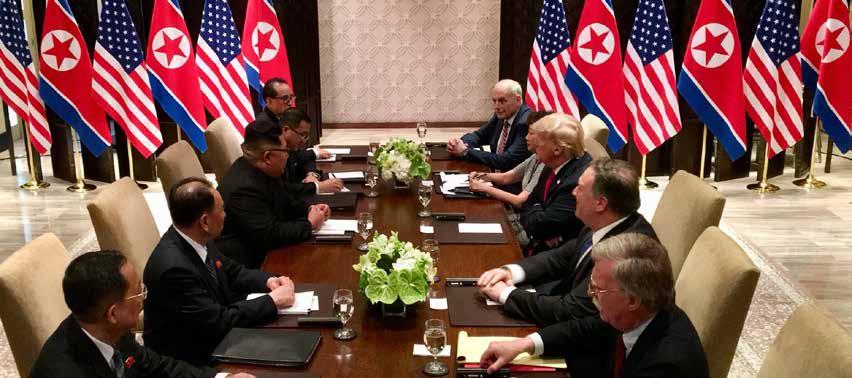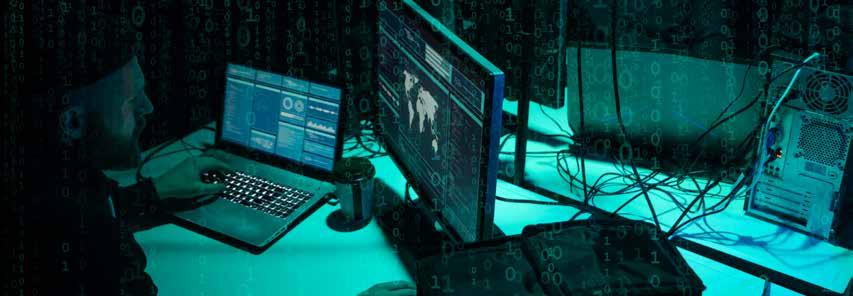
3 minute read
Korean Peninsula - Hyundai Motor-Korea Foundation Center for Korean History and Public Policy
2020 things to watch: KOREA
1
Moon’s Progressive Mandate, Interrupted, in South Korea
After successfully and safely holding a national parliamentary election in the middle of the COVID-19 pandemic, South Korean president Moon Jae-in is enjoying high approval ratings as the country’s citizens show their support for his government’s coordinated and organized handling of the COVID-19 crisis. With the elections having significantly expanded his party’s legislative majority, Moon is seeking to pursue an ambitious progressive agenda for the second half of his term while also addressing the economic crisis created by the pandemic. Yet these policy mandates are likely to contradict one another, both substantively and in terms of simple bandwidth: An economic recovery for South Korea would likely require significant support from South Korea’s powerful megacorporations, the chaebol. Yet one of Moon’s top pre-pandemic priorities was to reform South Korea’s economy to reform the chaebol system by reducing the conglomerates’ influence. While the Blue House will likely seek to accomplish all its goals simultaneously, immediate political demands for a rapid economic recovery will probably force Moon to limit his ambitions for domestic economic reform.
Featured Expert:
Abraham Denmark, Director, Asia Program
Jean H. Lee, Director, Hyundai Motor-Korea Foundation Center for Korean History and Public Policy Hazel Smith, Fellow, Asia Program Katie Stallard-Blanchette, Fellow, Asia Program
www.wilsoncenter.org/Koreacenter KoreaCenter@wilsoncenter.org @korea_center 202.691.4016
years years
2

Kim Jong Un’s Strategic Balancing Act in North Korea
North Korea’s actions in 2020 will be primarily driven by how Kim Jong Un balances strategic and domestic political imperatives. Despite diplomacy’s failure to achieve tangible progress toward North Korea’s denuclearization and the fact that international sanctions continue to plague North Korea’s economy, Kim likely believes that his strategic position is broadly favorable. North Korea has been able to continue to build ballistic missiles and nuclear weapons while demonstrating increasingly sophisticated short-range strike capabilities. Meanwhile President Trump repeatedly dismisses North Korea’s short-range missiles tests and praises his “good relationship” with Kim while also establishing a rather permissive approach to North Korea’s human rights violations. Kim likely believes that President Trump can tacitly accept a nuclear North Korea, and can even tolerate the likely ongoing development of intercontinental ballistic missiles (ICBMs) and nuclear weapons, as long as he can continue to point to North Korea as a foreign policy achievement. Yet Kim may also see Trump’s declaration of success before achieving success with North Korea as opening a political vulnerability that can be exploited with major provocations—such as an ICBM or a nuclear test—that would demonstrate the true lack of progress toward denuclearization that has been accomplished. Despite this potential opportunity for leverage, Kim will likely calculate that the relatively permissive and stable environment North Korea enjoys today is preferable to the tremendous risks of retaliation associated with a major provocation. Moreover, Kim may look ahead to the possibility of a new U.S. administration coming into office in 2021, and he may determine that a major provocation would be unlikely to set positive conditions for North Korea’s interests. Still, one cannot be certain that these strategic considerations will outweigh Kim’s domestic political calculations. If Kim perceives his domestic position to be vulnerable, he may conclude that major provocations could buttress his power at home by demonstrating strength and resolve while potentially coercing some sanctions relief from China or from the broader international community. Because North Korea may be in the midst of a major outbreak of COVID-19 and may as a result be suffering a significant human and economic toll, the potential for Kim to see himself in an uncertain political position may be higher than normal.










